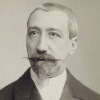“ Neither is the nature of man so unfortunately built, as that those powers and arts should have force to disturb reason, and not to establish and advance it. For the end of logic is to teach a form of argument to secure reason, and not to entrap it; the end of morality is to procure the affections to obey reason, and not to invade it ”
Francis Bacon, The Advancement of Learning (1605). copy citation
| Author | Francis Bacon |
|---|---|
| Source | The Advancement of Learning |
| Topic | logic morality |
| Date | 1605 |
| Language | English |
| Reference | |
| Note | |
| Weblink | http://www.gutenberg.org/files/5500/5500-h/5500-h.htm |
Context
“And as in negotiation with others, men are wrought by cunning, by importunity, and by vehemency; so in this negotiation within ourselves, men are undermined by inconsequences, solicited and importuned by impressions or observations, and transported by passions. Neither is the nature of man so unfortunately built, as that those powers and arts should have force to disturb reason, and not to establish and advance it. For the end of logic is to teach a form of argument to secure reason, and not to entrap it; the end of morality is to procure the affections to obey reason, and not to invade it; the end of rhetoric is to fill the imagination to second reason, and not to oppress it; for these abuses of arts come in but ex oblique, for caution.
(3) And therefore it was great injustice in Plato, though springing out of a just hatred to the rhetoricians of his time, to esteem of rhetoric but as a voluptuary art, resembling it to cookery, that did mar wholesome meats, and help unwholesome by variety of sauces to the pleasure of the taste.”
source


